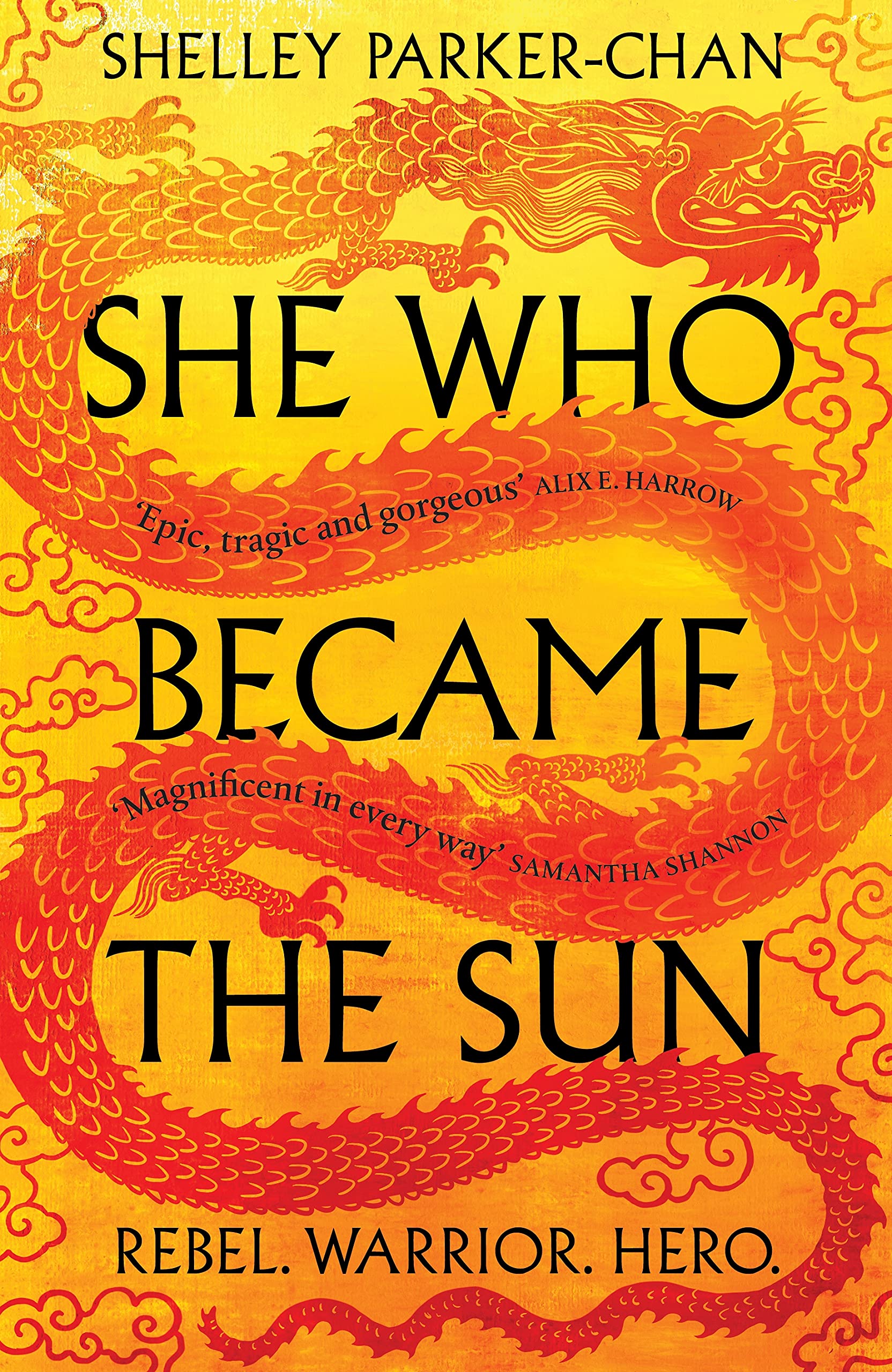Mulan meets Swordsman 2.
As a mostly-audiobook consumer with little time to actually read, it had taken me two weeks to finish Nghi Vo’s short novella, Empress of Salt and Fortune (though only two hours on the re-read); and a week and a half to complete Aliette de Bodard’s short novella, Fireheart Tiger, both of which I highly enjoyed.

With Shelley Parker-Chan’s highly-anticipated debut, She Who Became the Sun, being four times longer, I figured two and a half-months might be enough time for me to finish this re-imagining of the Ming Dynasty founder as a woman. Again bandying about Fantasy-Faction’s good name, I managed to secure a paperback ARC from TOR. When it arrived this past Monday afternoon, I decided to sample the first few pages…
…and was sucked in by Parker-Chan’s vivid description of starvation.
Two and a half days later, with a smoking hole in my chest from the conclusion of the secondary Danmei (M/M, Boys Love) arc, I flipped the last page.
This is saying something, because not only am I primarily an audiobook consumer, I’m also a straight male with a cynically cold heart. So how does a novel featuring two queer storylines achieve this?
First, the prose is magnificent. Parker-Chan has a gift for lyrical wordsmithing and evocative imagery. From the parched earth during a famine, to the tang of plum wine on the tongue, from the scent of rain-soaked marsh to the jangling of hair beads in the wind, I felt immersed in the story. English renderings of Chinese proverbs and idioms captured both meaning and connotation, something which oftentimes falls shorts in Wuxia translations.
Second, the characters are so textured and real. Their inner conflicts between the affairs of heart and larger ambitions create a constant tension. The titular character, Zhu, born into poverty as a girl with no future, “steals” a destiny intended for her brother by becoming him after he dies. Charismatic and resourceful, she’s Mulan with a Sixth Sense: she not only sees ghosts, but also understands others’ desires, and uses that to her advantage.
The secondary arc follows Ouyang, the last male heir of a family that betrayed the Mongol rulers of China. While the rest of his family was executed, Ouyang bears the shame of castration. Now an accomplished general, he’s torn between a filial need for revenge and his yearning for his liege lord, a Mongol prince whose father passed judgement on Ouyang’s family. This latter aspect felt reminiscent of Swordsman 2 (based on a Jin Yong novel set during the Ming Dynasty), where the castrated martial arts master (portrayed by Brigitte Lin) was drawn to the their rival (played by Jet Li).
As antagonists, Zhu’s and Ouyang’s storylines collide in watershed moments that propel each other towards their respective destinies. However, it’s their interactions not with each other, but with their love interests that pop off the page. Whether it’s Zhu’s witty banter with a rebel general’s daughter, or Ouyang’s tortuous longing for Esen, I couldn’t help but to root for both. Though I was much more invested in Zhu’s story for most of the book, the resolution of Ouyang’s arc was my favorite, most gut-wrenching part.
If I have any complaints about She Who Became the Sun, it is a few of the climactic pinch points could have been drawn out for dramatic effect; instead they concluded rather quickly, feeling a little like Forest Gump’s inclusion in historic events as, “That’s all I have to say about that.” As such, the emotional impact felt blunted in those instances.
As a Chinese medicine practitioner, I also had a minor quibble with the description of a disease as being Yin in nature.
With the evocative wordsmithing, compelling characters, and heavy themes, I rate She Who Became the Sun a 9.25 out of 10

